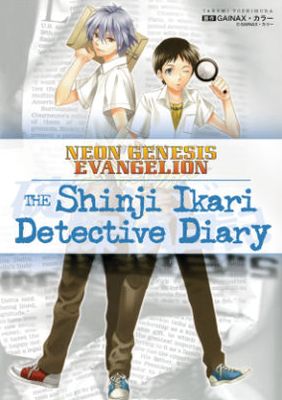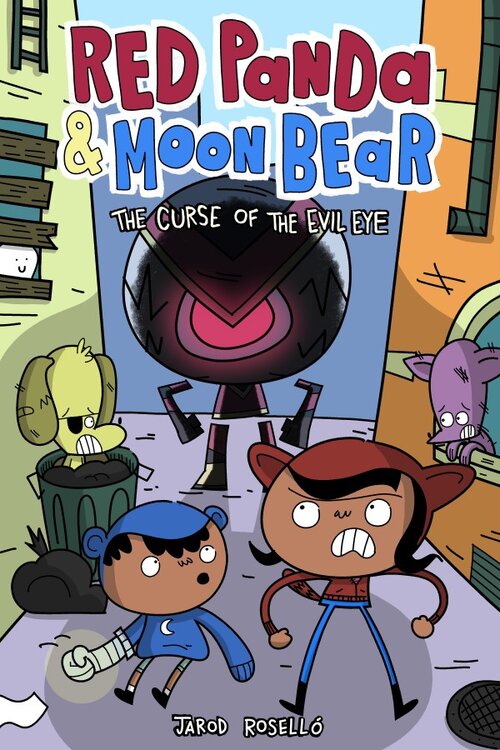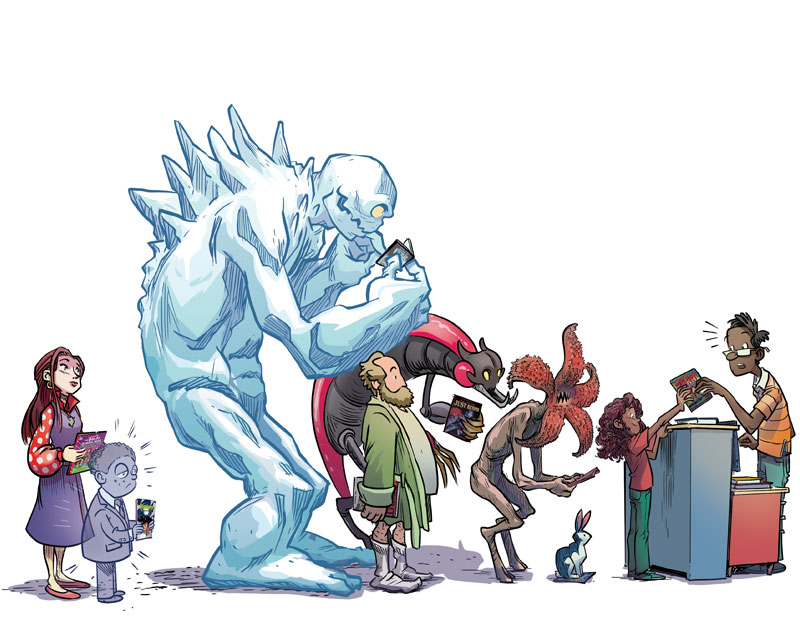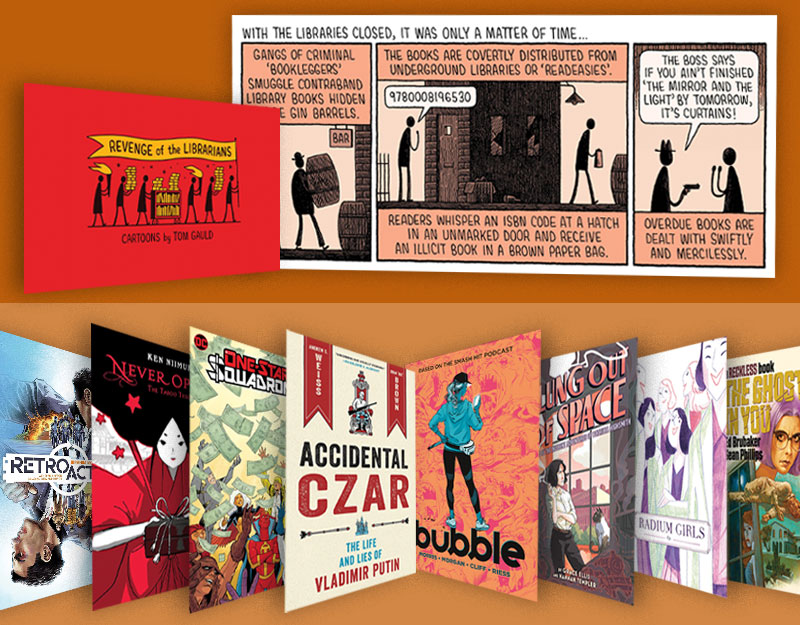
Review: Neon Genesis Evangelion: The Shinji Ikari Detective Diary Vol. 1
 Neon Genesis Evangelion: The Shinji Ikari Detective Agency Vol. 1
Neon Genesis Evangelion: The Shinji Ikari Detective Agency Vol. 1
Written and drawn by Takumi Yoshimura
Dark Horse, $9.99
At what precise point does the expansion of a franchise cross over from abundant to ludicrous? Take the 1995 giant robot, teen angst and Christian iconography anime series Neon Genesis Evangelion, for example. Ignoring the other anime offshoots and video games alone to focus solely on the manga, there’s the original, official adaptation; Neon Genesis Evangelion: Angelic Days, a light-hearted version of the story based on a parallel universe suggested by the anime; Neon Genesis Evangelion: The Shinji Ikari Raising Project, a remixed, retelling as romantic comedy; Neon Genesis Evangelion: Campus Apocalypse, which replaces the giant robots with magical weapons; Neon Genesis Evangelion: Comic Tribute, the recently released, single-volume parody; and now, Neon Genesis Evangelion: The Shinji Ikari Detective Agency, which, as the name suggests, casts the protagonist as a boy detective.
That’s a lot of NGE comics, stretching the franchise in very different directions, with this offshoot being perhaps the most different yet, moving the characters into an entirely different genre rather thoroughly divorced from their home milieu. That said, we’re still safely on the right side of ludicrous, given that this latest series keeps the characters so thoroughly intact and is a highly comic comic, focusing on laughs over drama and fully acknowledging that there’s something laughable about the franchise’s continuous resurrection in newer, weirder forms.
ADVERTISEMENT
ADVERTISEMENT
Manga-ka Takumi Yoshimura introduces us to high schooler Shinji Ikari, a quiet loner who classmates Toji and Kensuke continually rope into hanging out with them…or helping them out, as they are in the process of doing at the beginning of the comic. Apparently, they’ve gotten in trouble with some local yakuza and think Shinji might be able to help him. He agrees to visit the Kaji Ryoji Detective Agency to hire help on their behalf, and there he meets Kaji, Misato, and Pen-Pen, with the penguin apparently serving as lead investigator.
Rather than taking the job, they assign it to Shinji, teaming him up with Kaworu. Through aggressive, even silly, manipulation, the grown-ups quickly have Shinji working for them and living as Kaworu’s new roommate, and the pair regularly investigate mysteries surrounding their own school.
This manga differs a bit from past ones in the amount of attention paid to the male members of the cast, with Shinji and Kaworu front and center, and even Toji, Kensuke, and Kaji introduced early and given the biggest roles. Misato is present from the beginning, but plays a small role in Shinji’s life, no bigger than that of Pen-Pen.
The girls, Auska and Rei, don’t appear until rather late in the first volume, and it’s not until the climax that it’s revealed that they actually work for a rival detective agency, The G.I. Agency. (Fans will guess who their boss is immediately; suffice it to say that the I stands for Ikari.)
The Evas are present, but they aren’t giant robots, instead taking another form, as they did in Campus Apocalypse. Here they are genie-like servants that live in gemstones that only special children can call forth; they appear as cooler fighting-game versions of the kids who call them. (In this volume, we see those serving Asuka, Kaworu and Shinji; Rei’s hasn’t been revealed yet.) While they may play a bigger role in the future, here they seemed almost superfluous, a mandated intrusion on the inter-character comedy that was working well enough without them.
Yoshimura’s character designs vary rather greatly from those of original anime character designer Yoshiyuki Sadamoto; while they’re clearly the same characters, Yoshimura’s are all taller, lankier, and somewhat flatter, with smaller heads and smaller expressions. They’re a bit less “open,” but, at this point in the franchise’s existence, they’re all recognizable at a glance, so keeping them consistent amounts to little more than “not screwing them up.”
ADVERTISEMENT
ADVERTISEMENT
There are a few gags at the franchise’s expense. Some are subtle, as when an exasperated Shinji vents over being press-ganged into detective work: “What’s wrong with these people? I mean, forcing an untrained kid to go out and do their dirty work for them…who’d ever believe a thing like that?!”
Other gags are a bit more forced, as in a conversation in which Kaworu castigates Shinji for dismissing the supernatural when they are investigating sightings of a ghost: “I mean, what’s more likely,” he asks Shinji, “That we’re reborn souls of a distant ancestral races, flowering from seeds planted in the moon, billions of years ago…or that we just…evolved?”
Such in-jokes may not make much sense to readers staring their NGE experience here, but, at the same time, they are just jokes, and for all intents and purposes, this is a fresh start, so no previous experience is really required.
It’s probably not the best place to start with NGE comics, but that’s only because it’s not the best NGE comic, not because there’s a threshold of required foreknowledge or anything. I imagine this will appeal most to franchise fans though, as they are the readers who will likely find the events of the book the freshest, as they are really only new and inventive within the context of the franchise.
About J. Caleb Mozzocco
J. Caleb Mozzocco is a way-too-busy freelance writer who has written about comics for online and print venues for a rather long time now. He currently contributes to Comic Book Resources' Robot 6 blog and ComicsAlliance, and maintains his own daily-ish blog at EveryDayIsLikeWednesday.blogspot.com. He lives in northeast Ohio, where he works as a circulation clerk at a public library by day.
ADVERTISEMENT
ADVERTISEMENT
SLJ Blog Network
One Star Review, Guess Who? (#202)
Review of the Day: My Antarctica by G. Neri, ill. Corban Wilkin
Parsing Religion in Public Schools
Take Five: LGBTQIA+ Middle Grade Novels
ADVERTISEMENT







